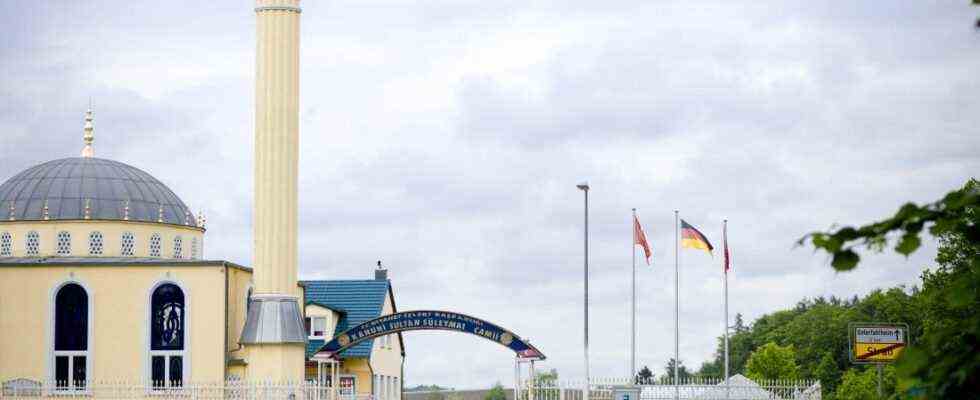On Tuesday, the CSU parliamentary group took a clear position on the question of whether a muezzin should call to prayer in Bavaria’s mosques in the future. A model project like the one in Cologne, which allows mosques there to call muezzins under strict conditions, is “not the right approach,” said Winfried Bausback, deputy chairman of the CSU parliamentary group on the subject. “The call to prayer is not a means that leads to more integration and it is not an indication of tolerance when you say: It belongs to us now,” said Bausback.
At the same time, Bausback urged to take a differentiated look at the topic – depending on which Muslim community it is about. It is “not helpful” to allow the mosques of the Ditib community to call the muezzin. Ditib is controversial because of its proximity to the Turkish state and given sermon texts. Like Bausback, Interior Minister Joachim Herrmann (CSU) also emphasized religious freedom and “tolerant coexistence”. But he said that “a large majority in our country” does not want muezzin calls. Ignoring this, according to Herrmann, does not lead to more tolerance between the religions, but to more polarization.
The AfD parliamentary group had applied for the debate about the muezzin call – and demanded a “clear no” from the state parliament to the muezzin call in Bavaria. Their MP Uli Henkel began his speech with an “Allahu akbar” and the rest of the Muslim call to prayer in Arabic. Subsequently, a sharp dispute developed in which the other parliamentary groups, especially the AfD, sharply attacked. The AfD is concerned with the debate “not about a constructive setting of topics”, but merely about “inciting against citizens of the Muslim faith,” said Gabriele Triebel (Greens). Criticism of the AfD’s setting of topics also came from the SPD MP Arif Taşdelen. The AfD would elude social reality in Bavaria, because Muslim people like him have long been part of our country. “It annoys you that Bavaria is open to the world. It annoys you that so many cultures enrich the country, it annoys you that I am here. I honestly tell you: I am glad that it annoys you,” said Taşdelen.
Fabian Mehring (Free Voters) said that those who expected a deradicalization after the change in personnel of the AfD parliamentary group had already been disappointed. The background: At the beginning of the month, the parliamentary group had elected a new dual leadership, consisting of Christian Klingen and Ulrich Singer, who are considered to be more moderate. “The AfD remains a right-wing populist party in the literal sense of the word. The AfD is right-wing and the AfD is populist,” Mehring said on Tuesday. It is the task of all democratic parties to work to ensure that they no longer belong to the next state parliament.
Although the CSU parliamentary group also positioned itself against the muezzin call, its speakers were keen to distance themselves from the AfD. The CSU is “against Islamism,” said Josef Schmid, but unlike the AfD, “for cooperation”. Interior Minister Herrmann also spoke of an “unworthy game” by the AfD, which gave the impression that the muezzin call would “sound several times a day” if allowed by a local authority. In Munich, for example, the call was allowed during the lockdown when visiting churches and mosques was not possible – but only temporarily, at a few fixed times and under strict conditions, such as noise protection.
Matthias Fischbach (FDP) emphasized that the question of whether for or against the muezzin call is ultimately not about a decision by the state parliament, but about regulation at the municipal level. The decision ultimately rests with the municipalities, which would decide on a case-by-case basis. “It is best to decide on site what is appropriate and what is not,” said Fischbach.

